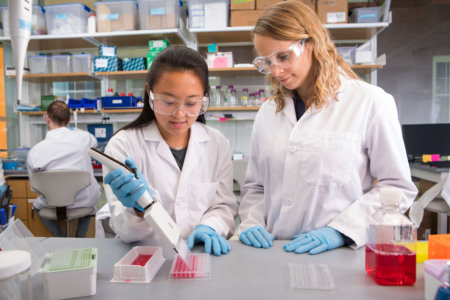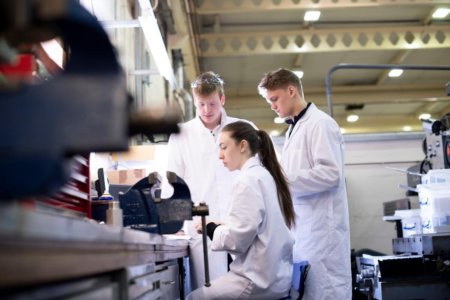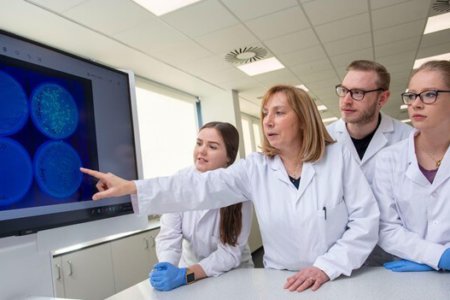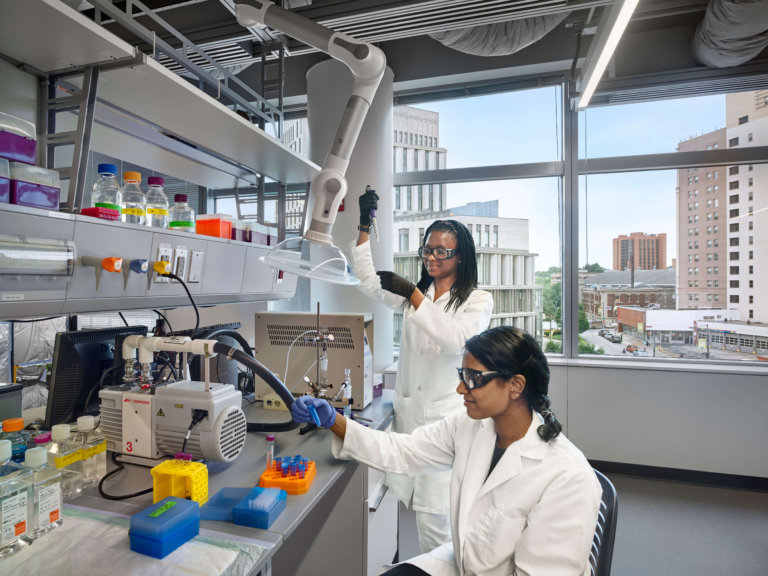
Prosthetics. Pacemakers. Regenerative tissue growth. What do all these have in common?
They are some of the major breakthrough products of the Biomedical Engineering field. With increased technology advances, the potential products that can save or transform human lives can be many more than we can imagine.
Biomedical Engineering is more than just applying engineering concepts to biology and health care. As a broad interdisciplinary field, Biomedical Engineering may include learning life sciences, medicine, mathematics, pharmacology and even computer science. Ultimately, you will be trained to think about how to solve issues related to people’s health and wellbeing.
At the same time, since you can understand both engineering and medical concepts, you can get to work with different professionals in the health and medicine industries such as laboratory scientists, nurses and physicians. With good communication, problem-solving and research analysis skills, you may even get to work in a multidisciplinary team.
Bioengineers also earn good money — in 2019, the average salary for bioengineers was about US$94, 280.
If you are interested in making a difference in people’s lives, these four universities may have just the right programme for you.
Drexel University School of Biomedical Engineering, Science and Health Systems
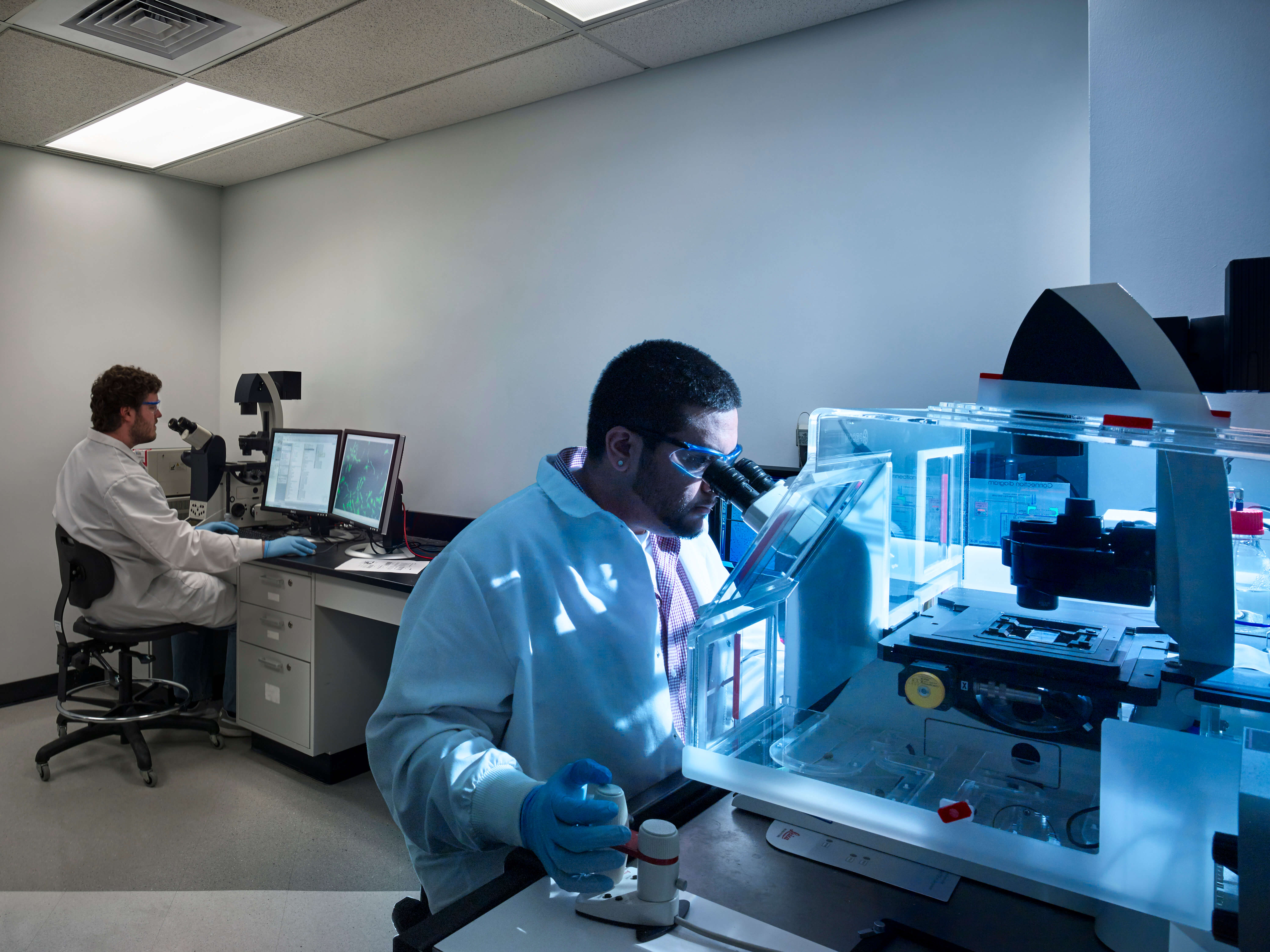
Drexel University students get the opportunity to work with state-of-the-art research equipment. Source: Drexel University
Located in Philadelphia, Drexel University is home to over 23,000 students at its 15 colleges and schools. Even though its history dates back to 1891, it is very much in tune with technology and innovation; for example, in 2000, it was the first university to have a totally wireless campus.
Drexel holds many accolades. The Drexel University School of Biomedical Engineering, Science and Health Systems is the only independent School of Biomedical Engineering in the entire country. Their Master of Science (MS) in Biomedical Engineering is ranked #1 in the Greater Philadelphia area (College Choice) and third most popular in America (College Factual).
Drexel is also part of Philadelphia’s Cellicon Valley Avenue of Technology — one of America’s highest concentrations of medical universities and hospitals, biomedical device and health systems organisations, as well as related industries.
Curricula here include flexible, in-depth specialisations such as Bioinformatics and Neuroengineering. The School also has other related postgraduate programmes including Biomedical Science, Biomedical Engineering and Business, and Bioinformatics — at MS and PhD levels; they are also available as Concentrations and Certificates.
As part of their experiential learning and networking experience, students can opt for three or six months to do their Graduate Co-op in this emerging field.
With internationally renowned faculty, a welcoming environment and their unique co-op education, Drexel will help you achieve your dreams of becoming a biomedical engineer. For more information, click here.
University of Texas at Arlington

Summertime at University of Texas at Arlington. Source: University of Texas at Arlington
As a Research 1 university, the University of Texas at Arlington — founded in 1895 — has been attracting students from every state and over 100 countries. Its campus is ranked as one of the most ethnically diverse campuses in America (US News and World Report, 2020).
Their campus, spanning 420 acres, includes 100 buildings with some dating back to 1919. Students wishing to visit the campus can schedule either a physical or virtual tour.
This University — ranked first nationally for veterans — also has 16 graduate programmes ranked in the US News and World Report 2022 for Best Graduate Schools, and is included among the top 200 universities for indigenous students. It is also among America’s top public universities for offering a high quality college education to students of all income groups.
The Department of Bioengineering has several bachelor’s, master’s and PhD degrees as well as a minor in biomedical engineering. Students can even pursue a combined Bachelor of Science in Biology with a Master of Science in Biomedical Engineering. Talented Physics or Biochemistry students can apply for the fast track programme where they first do a Bachelor of Science in Physics or Biochemistry and then a master’s degree in Biomedical Engineering.
University of Kansas

The sprawling campus of the University of Kansas. Source: The University of Kansas, Facebook
Being Kansas’s flagship university, the University of Kansas — with five campuses including the main one in Lawrence — has 28,500 students, including 1,700 international students from over 100 countries. Founded in 1865, it has grown to become a premier research university, and it is one of only 34 public institutions in the esteemed Association of American Universities.
Besides having a wide array of 500 degree programmes, the University of Kansas has been also ranked first for honours programmes among US public universities.
With on-campus employment, external internships, undergraduate research and career resources, students here are prepared for and able to find jobs and work experiences while working together on research projects with knowledgeable professors.
With a collaborative environment for the Bioengineering programme at the School of Engineering, students can enjoy a great sense of community and work-life balance. They also get to use state-of-the-art computer labs and research facilities.
For graduate students, they can choose to study Bioimaging, Biomaterials and Tissue Engineering and Biomolecular Engineering among others. There is no undergraduate programme — students can instead pursue the Undergraduate Bioengineering certificate together with any other engineering discipline.
Lassonde School of Engineering, University of York

The striking facade of Lassonde School of Engineering at York University. Source: Lassonde School of Engineering, Facebook
At Lassonde School of Engineering, York University — an international teaching and research university in the Keele campus, Ontario, Canada — students can choose from 11 undergraduate and seven graduate programmes, all internationally recognised and accredited. Over 4,500 undergraduate students come to study there.
Not only do the students on all engineering programmes learn in the classroom, they can also build their professional portfolio in co-op/internship opportunities and work together on research with distinguished professors. There is an option to take up the BEST (Bergeron Entrepreneurs in Science and Technology) entrepreneurship certificate — offered in conjunction among the Engineering, Business and Law Schools — too.
Students interested in having a career in Biomedical Engineering can study the Mechanical Engineering undergraduate programme — one of the broadest programmes at Lassonde. On this multidimensional programme, students learn about design engineering and developing medical diagnostic devices among others.
They can also complete their co-op in a minimum of 12 months up to 20 months, and pair it with a BA in International Development to get a dual degree.
This programme is accredited by the Canadian Engineering Accreditation Board.
*Some of the institutions featured in this article are commercial partners of Study International








